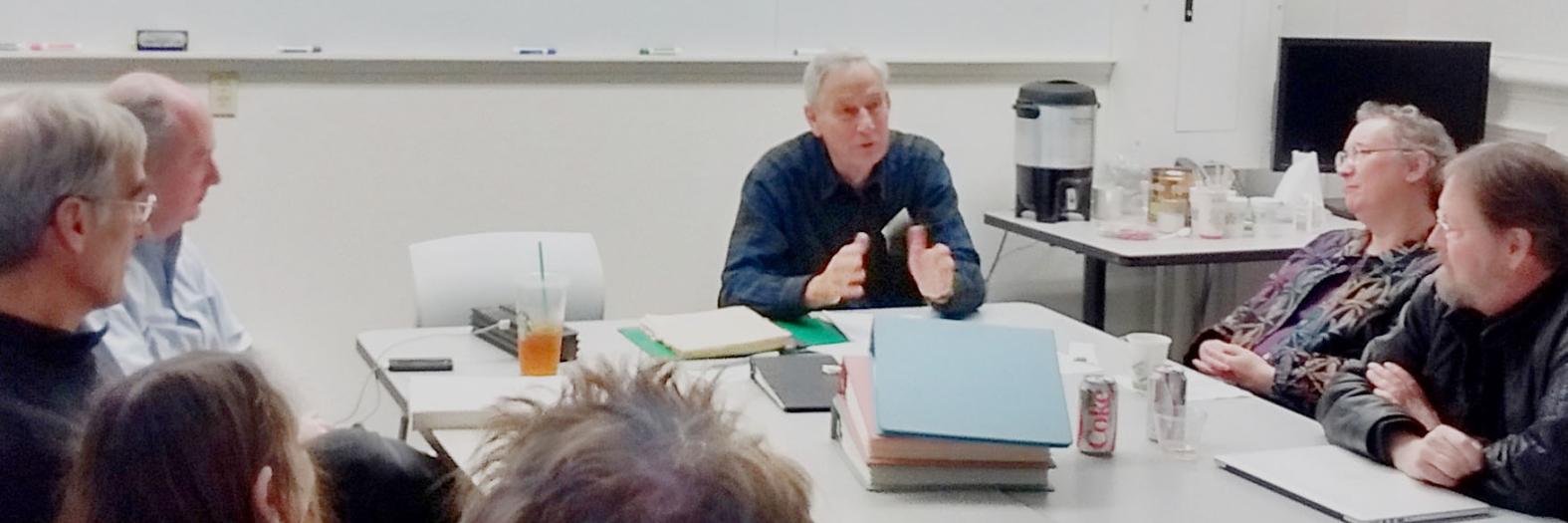The popping of champagne corks heralded the start of last week’s Friday Afternoon Seminar on Information Access which celebrated completion of its 25th year. Appropriately titled Information Access: the last 25 years and the next 25 years, the seminar gave co-chairs Michael Buckland, Clifford Lynch, and Ray Larson and seminar participants an opportunity to reflect on its past, as well as look forward to what the next 25 years may have in store in access to information, including the study of information, the evolution of schools of information, the re-invention of bibliography, and the management and communication of research outcomes, to name a few.
Over the years, the seminar has hosted a number of fascinating presenters, many of whom went on to notable careers, including Tim Berners-Lee, pioneer of web protocols; a very young Brewster Kahle, founder of the Internet Archive; large database pioneer Jim Gray; Héctor García-Molina of Stanford’s NSF Digital Library project; former faculty member Charles Bourne, who conducted the first remote online search in 1963; and David Rosenthal and Vicky Reich, pioneers of the LOCKSS digital archiving solution.
Michael kicked things off with a history of the seminar’s beginnings in the spring of 1991. At that time, Clifford Lynch, then the director of the Division of Library Automation in the University of California Office of the President (UCOP), wanted to teach but was faced with an intense travel schedule. To facilitate Clifford’s teaching, Michael agreed to a jointly lead the seminar. He also asked him to pick a time that would best suit his busy schedule. That time turned out to be, and continues to be the “thoroughly unsocial” time of Friday afternoon “when nobody in their right mind would schedule anything,” said Buckland. But it turned out to be a great time for participants both near and far, fostering good will and a collaborative spirit by enabling participation by Bay Area professionals, including people from the Research Libraries group, OCLC, the California Digital Library, Stanford, and elsewhere.
Michael was well-suited to co-lead this seminar. A faculty member and former dean of the School, he had also been responsible for developing a comprehensive library plan for UCOP's then nine-campus system. The plan focused in part on bibliographic searching by library users of remote resources.
Ray Larson joined in as a young assistant professor hoping to get enough published so that he could “hang around awhile.” He had also worked with Clifford and Michael on developing the UC public access online catalog called MELVYL.
At the time of the seminar’s inception, the school emphasized design in its curriculum, and there were often design seminars for doctoral students. This seminar began with the title Building a Bibliographical Robot in an effort to explore how search and discovery could be delegated to software. It was later renamed Extended Retrieval to emphasize search in multiple resources in networked environments. Finally it was generalized to Information Access, but nicknamed The Friday Afternoon Seminar.
Looking forward to the next 25 years, one of the most pressing areas of focus will be the stewardship and preservation of the cultural record: how information is collected, passed on, and made usable in a time when the amount of data and digital artifacts, and the technologies that produce them, are growing and changing at incredible rates. These problems are complex because they are social, legal, and economic. As Ray put it, “The seminar in many ways has been a reflection of what’s been happening in the technology, and as our capabilities and the ability to do things has grown we’ve changed the focus [of the seminar] over time. How are we going to keep all of this around? [It’s] more than we could ever look at in human lifetimes. How are you going to find what is useful? How are you going to keep it around? What is, potentially, the information that people in the future will want to look at? It’s been a grand journey.”










